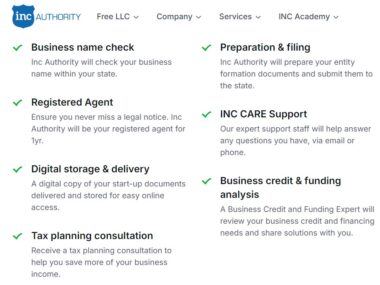Independent Financial Advisor
Are you lookinng for financial advice tailored to your specific needs? Look no further than an independent financial advisor. With their expertise and unbiased approach, these professionals can guide you through the complex world of finance and help you achieve your goals.

An independent financial advisor is not tied to any specific financial institution or product, which means they are free to recommend what is truly best for you. Whether you need help with retirement planning, investment strategies, or insurance options, they can provide unbiased advice and create a personalized financial plan.
By working with an independent financial advisor, you can benefit from their extensive knowledge and experience. They understand the intricacies of the market and can help you navigate challenges and seize opportunities. With their guidance, you can make informed decisions that align with your financial goals.
Take control of your financial future by partnering with an independent financial advisor. Their expertise and personalized approach can give you the confidence and peace of mind you need to make sound financial decisions. Start your journey to financial success today.
What is an Independent Financial Advisor?
An independent financial advisor (IFA) is a professional who provides financial advice and services to individuals, families, and businesses. Unlike other types of financial advisors, IFAs are not affiliated with any specific financial institution or product. This independence allows them to provide unbiased advice and recommendations based solely on their clients’ best interests.
IFAs offer a wide range of services, including retirement planning, investment management, tax planning, estate planning, insurance, and more. They work closely with their clients to understand their financial goals, risk tolerance, and time horizon, and then develop personalized strategies to help them achieve those goals.
One of the key benefits of working with an IFA is their ability to offer a holistic view of your financial situation. They take into account all aspects of your financial life and create a comprehensive plan that addresses your specific needs and circumstances. This personalized approach sets IFAs apart from other financial advisors and ensures that their advice is tailored to your unique situation.
Benefits of Working with an Independent Financial Advisor
Working with an independent financial advisor offers numerous benefits that can help you achieve your financial goals and secure your future. Here are some of the key advantages of partnering with an IFA:
Unbiased Advice
As mentioned earlier, one of the primary advantages of working with an IFA is their unbiased approach. Since they are not tied to any specific financial institution or product, they have the freedom to recommend what is truly best for you. This independence ensures that their advice is based solely on your needs and goals, rather than any external influences.
Personalized Financial Planning
Each individual has unique financial circumstances and goals. An IFA understands this and creates a personalized financial plan tailored to your specific needs. They take the time to understand your current financial situation, risk tolerance, and future objectives, and then develop a strategy that aligns with your goals. This personalized approach ensures that you receive advice and recommendations that are relevant and suitable for your situation.
Extensive Knowledge and Expertise
IFAs possess a wealth of knowledge and experience in the field of finance. They stay up-to-date with the latest market trends, investment strategies, and regulatory changes to provide you with the most accurate and relevant advice. Their expertise allows them to navigate the complexities of the financial world and identify opportunities that can help you grow your wealth and achieve your financial objectives.
Ongoing Support and Guidance
Financial planning is not a one-time event; it’s an ongoing process. An IFA provides ongoing support and guidance to help you stay on track and make adjustments as needed. They regularly review your financial plan, monitor your investments, and make recommendations based on changing market conditions or personal circumstances. This continuous support ensures that your financial plan remains aligned with your goals and helps you adapt to any changes in your life.
Fiduciary Duty
Independent financial advisors have a fiduciary duty to act in their clients’ best interests. This means they have a legal and ethical obligation to prioritize your needs and goals above their own. They must provide you with transparent and unbiased advice, disclose any potential conflicts of interest, and always act with integrity. This fiduciary duty ensures that your interests are protected and that you receive the highest level of service and care.
Access to a Network of Professionals
Another advantage of working with an IFA is their network of professionals. IFAs often collaborate with other experts, such as tax professionals, estate planners, and insurance agents, to provide a comprehensive range of services. This network allows them to tap into a wealth of expertise and ensure that all aspects of your financial plan are addressed.
Partnering with an independent financial advisor can provide you with the knowledge, guidance, and resources you need to navigate the complex world of finance and achieve your financial goals. Their unbiased advice and personalized approach can give you the confidence and peace of mind you need to make sound financial decisions.
How to Become an Independent Financial Advisor
Becoming an independent financial advisor requires a combination of education, experience, and professional certifications. Here are the steps you can take to pursue a career as an IFA:
Step 1: Obtain a Bachelor’s Degree
While a bachelor’s degree is not always required to become an IFA, it can provide you with a solid foundation in finance, economics, or a related field. Consider pursuing a degree in finance, accounting, economics, or business administration to gain the necessary knowledge and skills.
Step 2: Gain Relevant Work Experience
To become an IFA, it’s essential to gain practical experience in the financial industry. Consider working in entry-level positions at financial firms, banks, or brokerage firms to gain a solid understanding of the industry and develop valuable skills. This experience will not only enhance your knowledge but also help you build a network of contacts in the field.
Step 3: Obtain Professional Certifications
Professional certifications demonstrate your expertise and commitment to the field of financial planning. Some of the most recognized certifications for independent financial advisors include the Certified Financial Planner (CFP), Chartered Financial Analyst (CFA), and Chartered Financial Consultant (ChFC) designations. These certifications require passing rigorous exams and meeting specific education and experience requirements.
Step 4: Build a Client Base
Building a client base is crucial for the success of an independent financial advisor. Start by reaching out to friends, family, and acquaintances who may be interested in your services. Attend networking events, join professional organizations, and utilize online platforms to expand your reach and attract potential clients. Building strong relationships and providing excellent service will help you establish a solid reputation and generate referrals.
Step 5: Stay Informed and Continuously Educate Yourself
The financial industry is constantly evolving, and it’s essential to stay informed about the latest trends, regulations, and investment strategies. Attend industry conferences, participate in continuing education programs, and read financial publications to stay up-to-date. By continuously educating yourself, you can provide your clients with the most accurate and relevant advice.
Becoming an independent financial advisor requires dedication, hard work, and a genuine passion for helping others achieve their financial goals. By following these steps and pursuing ongoing professional development, you can build a successful career in this rewarding field.
Qualifications and Certifications for Independent Financial Advisors
Independent financial advisors (IFAs) are required to meet certain qualifications and obtain professional certifications to demonstrate their expertise and credibility. These qualifications can vary depending on the country or region in which they operate. Here are some of the common qualifications and certifications for IFAs:
Bachelor’s Degree in Finance or Related Field
While a bachelor’s degree is not always required, many IFAs hold a degree in finance, economics, accounting, or a related field. A degree provides a solid foundation in financial principles, investment strategies, and risk management, which are essential for providing sound financial advice.
Professional Certifications
Professional certifications play a crucial role in the financial planning industry and can enhance an IFA’s credibility and expertise. Some of the most recognized certifications for IFAs include the Certified Financial Planner (CFP), Chartered Financial Analyst (CFA), and Chartered Financial Consultant (ChFC) designations. These certifications require passing rigorous exams, meeting specific education and experience requirements, and adhering to a code of ethics.
The Certified Financial Planner (CFP) designation is one of the most widely recognized certifications for IFAs. It covers various aspects of financial planning, including retirement planning, tax planning, investment management, and estate planning. To obtain the CFP designation, candidates must complete specific coursework, pass a comprehensive exam, and have at least three years of relevant work experience.
The Chartered Financial Analyst (CFA) designation is geared towards investment professionals and covers in-depth knowledge of investment analysis, portfolio management, and ethics. The CFA program consists of three levels of exams that cover a wide range of topics, including economics, corporate finance, equity analysis, fixed income, and derivatives.
The Chartered Financial Consultant (ChFC) designation focuses on comprehensive financial planning and covers topics such as insurance planning, income tax planning, investment planning, retirement planning, and estate planning. The ChFC program requires candidates to complete coursework, pass exams, and have at least three years of relevant work experience.
Regulatory Requirements
In addition to educational qualifications and certifications, IFAs may also need to meet regulatory requirements imposed by government authorities or regulatory bodies. These requirements may include obtaining certain licenses or registrations, such as the Series 65 or Series 66 license in the United States. These licenses allow IFAs to provide investment advice and charge fees for their services.
It’s important for IFAs to stay informed about the specific qualifications and regulatory requirements in their jurisdiction to ensure compliance with the law and maintain their professional standing. By meeting these qualifications and certifications, IFAs can demonstrate their commitment to providing high-quality financial advice and services to their clients.
Responsibilities of an Independent Financial Advisor
Independent financial advisors (IFAs) have a wide range of responsibilities to ensure they provide the highest level of service and care to their clients. Here are some of the key responsibilities of an IFA:
Financial Planning
One of the primary responsibilities of an IFA is to create and implement comprehensive financial plans for their clients. They work closely with their clients to understand their financial goals, risk tolerance, and time horizon, and then develop a personalized strategy to help them achieve those goals. This includes analyzing their current financial situation, identifying areas for improvement, and recommending appropriate investment strategies and financial products.
Investment Management
IFAs are responsible for managing their clients’ investment portfolios. This involves conducting thorough research, analyzing market trends, and identifying suitable investment opportunities. They monitor clients’ portfolios, make adjustments as needed, and provide regular reports and updates to keep clients informed about their investments’ performance.
Risk Management
Managing risk is a crucial aspect of financial planning. IFAs evaluate their clients’ risk tolerance and develop strategies to mitigate potential risks. They help clients understand the risks associated with different investments and insurance products, and recommend appropriate risk management strategies, such as diversification and insurance coverage.
Retirement Planning
Retirement planning is a significant part of an IFA’s responsibilities. They help their clients determine their retirement goals and develop a strategy to achieve them. This includes estimating retirement income needs, analyzing retirement savings and investment accounts, and recommending appropriate retirement savings vehicles, such as Individual Retirement Accounts (IRAs) or 401(k) plans.
Estate Planning
IFAs assist their clients in creating effective estate plans to ensure their assets are distributed according to their wishes. They work closely with estate planning attorneys to help clients establish wills, trusts, and other estate planning documents. They also provide guidance on minimizing estate taxes and maximizing the transfer of wealth to future generations.
Tax Planning
IFAs help their clients optimize their tax strategies and minimize tax liabilities. They stay informed about changes in tax laws and regulations and provide recommendations on tax-efficient investment strategies, deductions, and credits. By working closely with tax professionals, IFAs ensure that their clients’ financial plans align with their tax goals.
Ongoing Client Communication
Maintaining regular communication with clients is essential for IFAs. They provide updates on investment performance, discuss changes in the financial markets, and address any questions or concerns clients may have. They also proactively reach out to clients to review their financial plans, make adjustments as needed, and ensure that their goals are being met.
Compliance and Ethical Standards
IFAs have a responsibility to comply with industry regulations and adhere to ethical standards. They must act in their clients’ best interests and avoid any conflicts of interest. They are required to disclose any potential conflicts and provide full transparency in their recommendations and fees. By upholding high ethical standards, IFAs instill trust and confidence in their clients.

These are just a few of the many responsibilities that independent financial advisors undertake to provide comprehensive and personalized financial planning services to their clients. By fulfilling these responsibilities, IFAs can help their clients achieve their financial goals and secure their financial future.
Differences Between Independent Financial Advisors and Other Types of Financial Advisors
When it comes to financial advisors, there are several types to choose from, each with its own unique characteristics and advantages. Here are some of the key differences between independent financial advisors (IFAs) and other types of financial advisors:
Independence and Objectivity
One of the main differences between IFAs and other financial advisors is their independence and objectivity. IFAs are not tied to any specific financial institution or product and can provide unbiased advice based solely on their clients’ best interests. Other types of financial advisors, such as those affiliated with banks or brokerage firms, may have incentives to recommend specific products or services.
Personalized Approach
IFAs offer a personalized approach to financial planning. They take the time to understand their clients’ unique needs, goals, and circumstances and develop customized strategies to help them achieve their objectives. Other types of financial advisors may take a more general approach and provide standardized recommendations that may not be suitable for everyone.
Holistic Financial Planning
IFAs offer holistic financial planning services that take into account all aspects of their clients’ financial lives. They consider factors such as retirement planning, investment management, tax planning, insurance, estate planning, and more. Other types of financial advisors may specialize in one or two areas and may not provide the same level of comprehensive planning.










